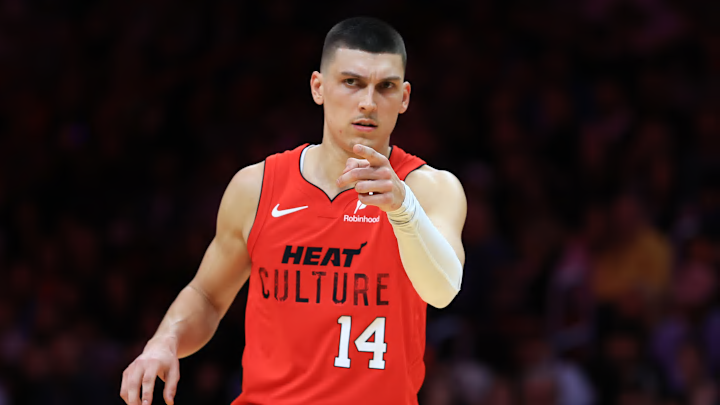Anticipation is building for the upcoming return of Tyler Herro from late-September surgery on his left ankle. Pressure is mounting right upon it for the Miami Heat's All-Star guard.
Beyond the normal challenge of trying to enter the 82-game marathon in stride, Herro must also adapt to a reworked offensive system that has excelled in his absence. He'll simultaneously be attempting to convince the front office, which didn't offer him a formal extension this offseason, that he should fit into the franchise's long-term plans, with or without breakout star Norman Powell alongside.
If Herro somehow manages all of that, he'll then have to challenge the notion that an NBA team—Miami-based or otherwise—can only be so good if he's the best player. His to-do list feels both lengthy and perhaps career-defining, but he does have control of this situation.
Herro must find his fit within the franchise, because the Heat won't cater to him.
Is it grossly cliched to describe this situation as the ball being in Herro's court? Absolutely. That doesn't make it any less accurate, though.
There might be a universe in which Miami's offense (and season as a whole) cratered in his absence, but that's not the one we're living in. Here, the Heat have handled the subtraction just fine, leaning on everything from typically feisty defense and Erik Spoelstra's roundball sorcery to an egalitarian offensive approach and Powell's smooth-as-silk transition to remain within striking distance of the Eastern Conference's elite.
This is not, in other words, a situation where the organization is lost without him or desperate to do anything it takes to make this work when he returns.
He either fits in, or he doesn't. And with his shot-making and willingness to fire, an up-tempo, spaced-out, movement-based attack should be a snug fit for his skills. But he has to be OK with (presumably) not handling the ball as much, not having as many plays drawn up for him, and probably playing a different brand of basketball than the one that just propelled him to a breakout season.
Those are legitimate sacrifices, by the way. Especially for a player who's slated to reach free agency in 2027 and remains pretty polarizing around the Association. What's best for the team and what's best for his future earnings aren't necessarily the same thing.
It's up to Herro to decide what's most important. Buying in doesn't guarantee he'll miss out on numbers now or dollars down the road, by the way. In fact, if he manages to star within this offense, level up while elevating those around him, and carries this club farther than anyone expects, the next contract he signs might be a blank check. It might even make folks rethink Miami being a mandatory mention every time a star surfaces anywhere near the trade market.
Not to oversell what we're about to see, but Miami's short-term outlook and long-term direction could all come into focus soon. And it's almost entirely on how Herro to sketch those pictures.
